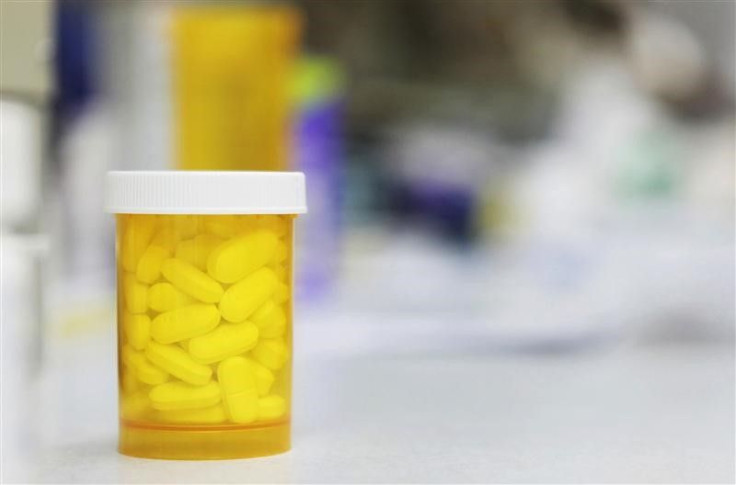Lexapro Side Effects: Escitalopram SSRI Antidepressant Common And Rare Side Effects

Escitalopram, better known by its pharmaceutical name Lexapro, is a selective serotonin reuptake inhibitor (SSRI) medication used to treat a number of conditions, most notably depression and generalized anxiety disorder. It is one of the top 10 most prescribed antidepressant medications in the U.S., and although the drug has helped countless patients deal with symptoms of their mental health disorders, it’s not without it’s own list of dangerous side effects.
Common
Some of the most common side effects of Lexapro involve intestinal troubles such as constipation, diarrheas, heartburn, and increased gas, Drugs.com reported. According to the Mayo Clinic, nausea typically begins within a week of starting any antidepressant, and may go away after a few weeks when your body adjusts to the medication. Stomach issues can be avoided or alleviated by ensuring that you take your antidepressant medication with food, eating smaller and more frequent meals, and even taking over-the-counter antacids.
Sexual side effects are also common among patients who take Lexapro. These include, decreased interest in sex, ejaculation delay, inability to keep an erection, trouble having an orgasm, or just general loss in sexual abilities or desires. Sexual symptoms are common among many different types of antidepressants and are largely related to the drugs' ability to raise levels of serotonin in the body. According to Healthline, while this may make patients feel more calm and less anxious, it can also calm and stabilize their libido, sometimes to the point of non-existence.
Less Common
Some less common side effects of Lexapro include inexplicable pains in the neck and shoulders, and around the eyes and cheekbones, Drugs.com reported.
Sleep problems can also be associated with Lexapro use. These include unusual drowsiness, dullness, tiredness, weakness, and a general feeling of sluggishness. Another less common side effect of Lexapro is vivid dreams. According to Marks Psychiatry, this is because the drug suppresses your REM sleep, the stage of rest where you dream. Due to this, when you eventually do fall into REM sleep, it may be more intense than usual, resulting in more intense dreaming.
Rare
Lexapro carries a black box warning, the most severe of all FDA warnings, and this is due to its increased risk of suicide, Everyday Health reported. It’s not entirely clear why antidepressants increase suicide risk, though there are theories. One suggests that this effect is related to the drug's ability to quickly and sometimes drastically change patient's mood by adjusting the amount of serotonin produced in the brain. Another less common theory suggests that antidepressants do not inspire patients to commit suicide, but rather give them the energy and motivation to commit an act they had already planned to do.
According to Drug Watch, this risk is especially high for patients younger than 25 and among all patients in the first few weeks of treatment. Patients with bipolar disorder, or a history of bipolar disorder, as well as those who have previously attempted suicide, are also at increased risk for this rare, yet serious side effect.
A condition known as Serotonin Syndrome can also occur in patients on Lexapro. Though rare, this condition is life threatening, and symptoms include restlessness, diarrhea, hallucinations, fever, vomiting and rapid blood pressure changes. Serotonin syndrome usually occurs in patients who take two medication that both affect serotonin levels, such as simultaneously taking Lexapro and a medication to treat severe migraines.
Read More:
Serotonin Syndrome Symptoms And The Drugs Most Likely To Cause This Potentially Fatal Reaction: Read Here
Single Dose Of Antidepressant Lexapro Can Change Brain's Wiring In Just 3 Hours: Read Here



























